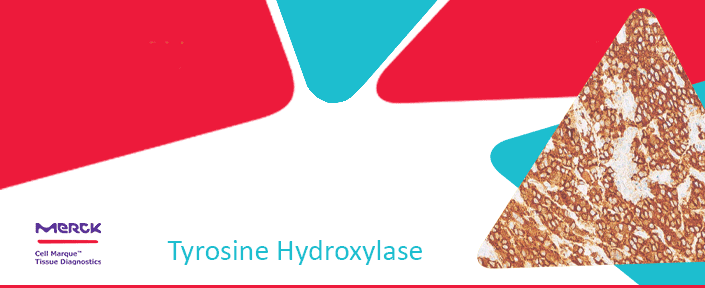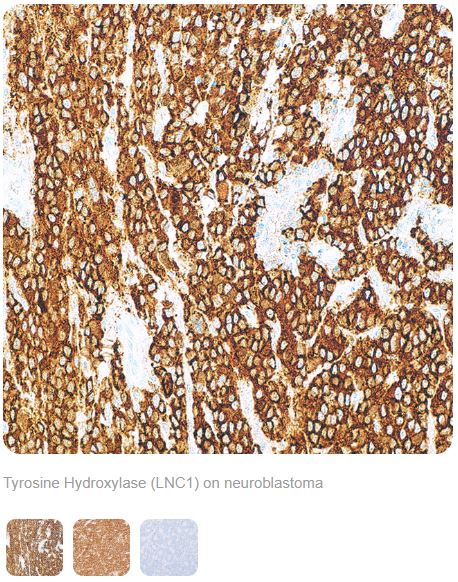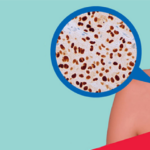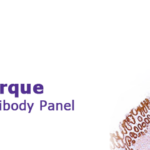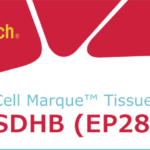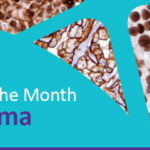27Sep
Cell Marque Tyrosine Hydroxylase (LNC1) Mouse Monoclonal Antibody
Last updated: 26th September, 2024
Tyrosine Hydroxylase (TYH) is the rate-limiting enzyme of catecholamine biosynthesiss.1,2 TYH uses tetrahydrobiopterin and molecular oxygen to convert tyrosine to L-DOPA, a precursor to dopamine. Anti-TYH is sensitive and specific for peripheral neuroblastic tumors in the differential diagnosis from other tumors of childhood and shows high diagnostic utility. Anti-TYH has been shown to positively label all pheochromocytomas and sympathetic paragangliomas, and thus aids in differentiating them from their histologic mimics such as adrenocortical neoplasms.3,4
References
- Daubner, S Colette et al. “Tyrosine hydroxylase and regulation of dopamine synthesis.” Archives of biochemistry and biophysics vol. 508,1 (2011): 1-12. doi:10.1016/j.abb.2010.12.017
- Loizou, L A. “Effect of inhibition of catecholamine synthesis on central catecholamine-containing neurones in the developing albino rat.” British journal of pharmacology vol. 41,1 (1971): 41-8. doi:10.1111/j.1476-5381.1971.tb09933.x
- Takemoto, Junkichi et al. “HuC/D expression in small round cell tumors and neuroendocrine tumors: a useful tool for distinguishing neuroblastoma from childhood small round cell tumors.” Human pathology vol. 85 (2019): 162-167. doi:10.1016/j.humpath.2018.11.004
- Warren, Mikako et al. “Utility of Phox2b immunohistochemical stain in neural crest tumours and non-neural crest tumours in paediatric patients.” Histopathology vol. 72,4 (2018): 685-696. doi:10.1111/his.13412
THESE PRODUCTS ARE NOT AVAILABLE FOR PURCHASE BY THE GENERAL PUBLIC.



